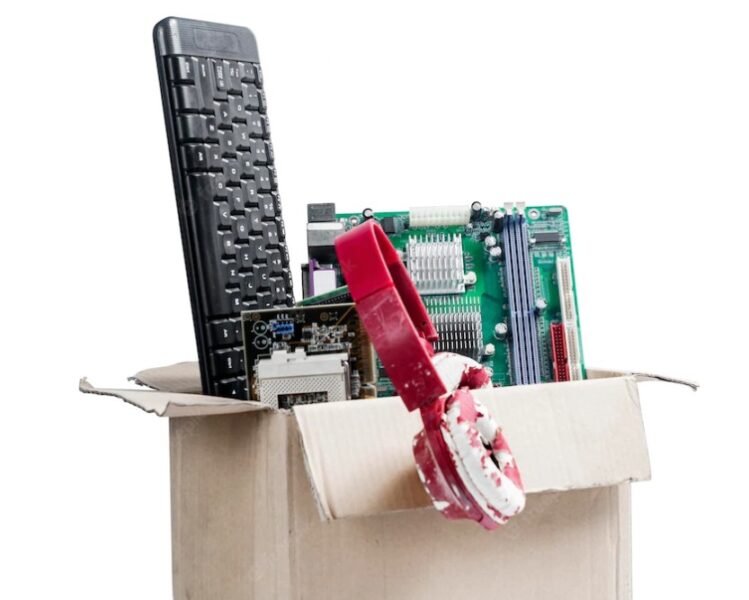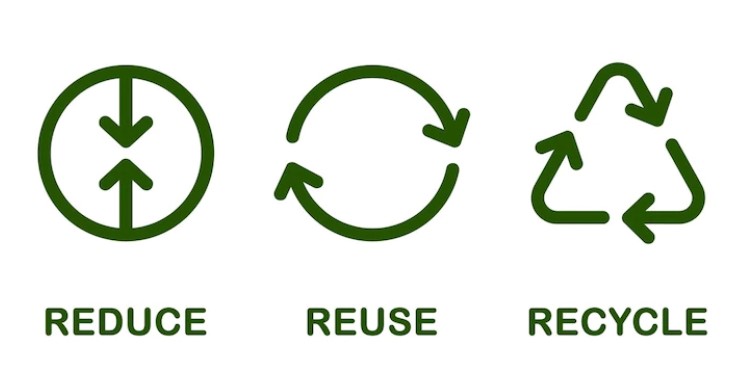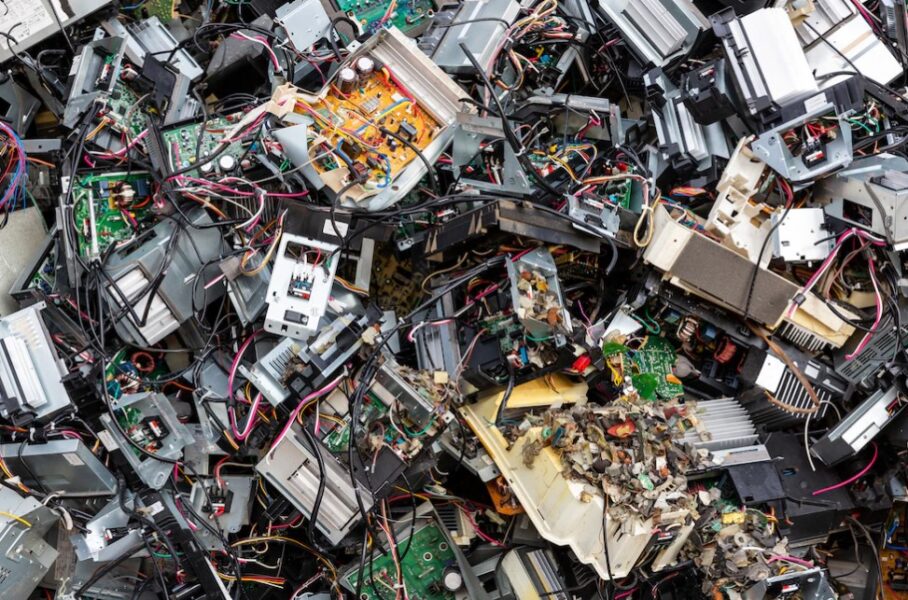
It's difficult to imagine a future without cellphones, GPS navigation systems, computers, and other digital devices since technology has grown so swiftly in recent years. E-waste reduction has become a major issue for environmental activists, municipal and state governments. Even the United Nations due to the constantly growing amount of obsolete electronics being discarded. Electronic trash, sometimes known as "e-waste," is increasingly a serious problem.
India's waste management industry has a lot of space for expansion because currently only 30% of the country's recyclable rubbish gets recycled. The country's waste management is inefficient for a variety of reasons, including a lack of efficient legislation for the collection, storage, and recycling of garbage, as well as outdated infrastructure.
Recent trends in e-waste management
New regulations and strategies for the production and recycling of electronic devices are built on the National Strategy for Electronics Stewardship of the Environmental Protection Agency.
Among the proposed or implemented changes are a focus on a zero-waste, linear economy, targeted susceptibility to cybersecurity to improve system destabilization methodologies, and an overall focus on proper e-waste recycling accreditations, employees' rights, and ecologic oversight for established service companies.
There are still obstacles to efficient waste management, such as a lack of investment, infrastructure, and consumer education, despite the Ministry of Environment, Forestry, and Climate Change (MoEFCC) publishing the E-waste laws in 2016 and implementing enhancements that followed. Many businesspeople and entrepreneurs have emerged in India to help the unorganized sector gather, process, and recycle electronic waste.
There are still obstacles to efficient waste management, such as a lack of investment, infrastructure, and consumer education, despite the Ministry of Environment, Forestry, and Climate Change (MoEFCC) publishing the E-waste laws in 2016 and implementing enhancements that followed. Many businesspeople and entrepreneurs have emerged in India to help the unorganized sector gather, process, and recycle electronic waste.

With a sincere belief in the three R's of sustainability, startups have begun to participate in a range of activities, including e-waste disposal, credit monitoring, logistics and distribution, data security and disposal, CSR initiatives, and refurbishing.
They start out by classifying the trash into glass, plastic, and metal. The hazardous substances are then processed, and the remnants are sent to be removed. Recyclers get the remaining plastic and metal.
Public health, Environment, and E-Waste
Electronic garbage is the component of conventional municipal solid waste that is increasing at the fastest rate in the world, raising environmental and public health concerns about how it is disposed of. Any electronic or electrical item thrown away, surplus, dated, or damaged is considered e-waste. Because most individuals don't know how to dispose of electronic devices properly, most of them are stored in homes.
This ever-growing rubbish is incredibly complex in nature, and it's also a rich supply of materials like copper, silver, and gold that can be salvaged and used again in manufacturing. According to allied market research, the worldwide e-waste management segment had a market value of $49,880 million in 2020 and is projected to increase at a CAGR of 14.3% from 2021 to 2028, reaching $143,870 million by that time. Because of their scarcity and expanding demand, rare metals have seen a significant rise in price.
Disposal and Management of E-Waste
When it comes to minimizing e-waste, the goal is not merely to lessen environmental risks. Recycling parts from e-waste uses far less energy than creating new ones, which helps save resources and reduces the amount of energy needed to make these items.
The following are a number of strategies for reducing and managing e-waste:
1. Purchase fewer items
The most common source of e-waste is the purchase of items we do not require. Avoid buying new electronic devices that the maker can’t reuse or discard. Opting for recyclable or long-lasting electronic products is a sustainable step towards e-waste management.
2. Organize your possessions
If you don't manage your electronics, cords, connections, and DVDs, you'll never know what you have. Purchasing something you think you need only to find that you already have a copy in your cabinet is the very last thing you should do.
3. Donate or give away your e-waste
Donate everything you don't need so that someone else can benefit from it. Since the sum donated is typically close to the asset's value if sold, donations make good tax deductions.
4. Return them to the store
A buy-back program creates a binding agreement between the buyer and the seller, implying that the seller has consented to subsequently purchase the goods from the buyer. Several stores provide this. Check to see whether the shop will purchase your used camera, computer, or other products before you go out and buy one.
5. Sell unused products
As soon as you are done using your devices, sell them since the value of newer ones decreases fast. Numerous businesses would happily buy your used laptops, video cameras, wearables, video game consoles, fitness bands, and other electronic devices. They promise to give services for "money in exchange for merchandise."

6. Find more about recycling possibilities in your region
No matter where you live, look into your local recycling options and tell your family and neighbors about them. For instance, the Environmental Protection Agency's website in the US provides details on regional prospects for recycling electronics.
7. You can now store data in the Cloud
There is no need to spend money on a large server or powerful equipment for business or personal storage. Cloud data solutions are excellent for preserving and syncing your information across many devices without the involvement of a server.
8. Learn as much as you can and be a little scared
It is crucial to properly dispose of electrical equipment because the majority of them contain dangerous components. Educate your family, your friends, and yourself. These substances ought to heighten our awareness of dangers of e-watse.
9. Recognize security concerns and dispose of personal computers and cell phones at recycling plants
Because all of your personally identifiable information is preserved on electronic devices even after you wipe it, there is another reason not to throw away your electronic devices. Recycling facilities may thoroughly clean your device before recycling it, preventing access to the data by cybercriminals.
10. Preserve what you've got
You may keep what's working for longer by making little tweaks. Clean your computer sometimes, and avoid overloading it, to increase the lifespan of your battery. The lifespan of electrical products may be considerably increased by regular service and maintenance.
Conclusion
We need to keep emphasizing that outdated models should be recycled rather than tossed since we know that customers will continue to buy new gadgets. We put the environment in peril if we throw away our technology in a landfill. On the other side, recycling provides several benefits for the environment. The alternative is to give these gadgets to a reliable business with years of experience recycling electronic equipment in a way that doesn't harm the environment.
Must Read: Environmental Effects of War






